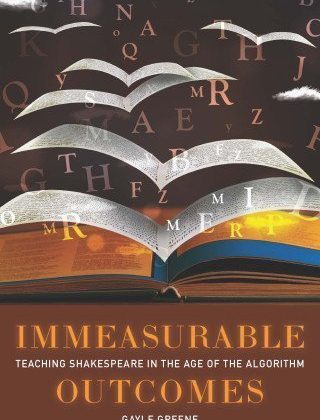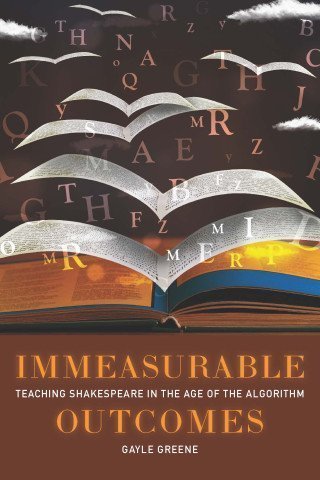

Here is a taste of Johann Neem’s review of Gayle Greene’s Immeasurable Outcomes: Teaching Shakespeare in the Age of Algorithm:
These are tough times for humanities professors. Flip through The Chronicle and the disillusionment jumps off the page. Post-pandemic students are disengaged. Colleges are cutting humanities programs. Academic libraries, whose stacks used to inspire awe and humility, are reducing the size of their collections. Students and policy makers are clamoring for practical, job-oriented majors, and business is already the most popular undergraduate major. Classrooms themselves may prove an unnecessary luxury — it can be faster to get a degree online.
It is overwhelming to wake up in the morning thinking about all these challenges. How am I supposed to do my day’s work when I’m not sure that it matters, or that it will matter years from now? It takes a lot of energy to craft a syllabus and prepare for class. As a historian, all I want is for my students to share some of my excitement and fascination with the past. Do I really care if they develop transferable skills for future employers? Honestly, no; I’m much more interested in their enjoyment of reading, thinking, and having conversations.
Gayle Greene’s Immeasurable Outcomes: Teaching Shakespeare in the Age of the Algorithm (Johns Hopkins University Press, 2023) is fully aware of this context, and offers a provocation: Good teaching matters, but it can’t be measured. As Greene, a professor emerita at Scripps College, sketched out in January in The Chronicle, efforts to defend the humanities and assess their effectiveness based on predetermined and measurable criteria (including syllabi with standardized learning outcomes and attempts to measure student growth) are inadequate and irrelevant. These efforts estrange both student and professor from what really counts. Her counterargument to those who want to mechanize teaching and learning comes in the shape of an invitation to her seminar on Shakespeare.
No one has recently captured as well as Greene the experience of being a humanities professor — what we hope to do, what happens (and doesn’t) during our classes, what gives us joy, and what makes us sad. I recognized earlier versions of myself in her students. While I like to think of myself as having been a super engaged student, I was probably like one of Greene’s more typical students: relatively checked out, until, one day, something clicked. As teachers, we hope for Dead Poets Society, but the humanities classroom yields humbler triumphs: discrete moments when a mind is activated, and something connects unexpectedly. Worthy of a movie? Perhaps not, but momentous nonetheless.
These victories were hard-won in my classroom last semester. For whatever reason, I had difficulty connecting with this group of students. I generally felt that, as Greene puts it, “the class is with me, though not enthralled.” But there were also a few moments when a student who I thought was not paying attention would interject or ask a question. Something one of us in the room said, or something in the reading, provoked them. And, after talking about it, the world might look a little different for that student than it did before. These tiny moments are immeasurable and unnoticeable unless one is there and has been teaching long enough to recognize their power. A flame flickers, and just might light. Those moments come and go so fast, but I live for them.
Greene’s classroom is unpredictable, but not unplanned. It’s a place for grappling, for allowing a certain kind of freedom that moves between structure and play, and for close readings and big questions. We join Greene as she meets a new crop of students. A few of them seem to know each other, but the rest are strangers. How can this bunch of diverse people become a community? She surveys the students and makes quick judgments about them; she sees what they wear, how they look at her and each other, and how they sit. They size her up in return. Will that student in the hoodie sit there in silent resistance? Will that engineering student rise to the occasion? Greene is worried. “These are deep waters we’re sailing into — are we seaworthy?”
Read the entire piece at The Chronicle of Higher Education.
.